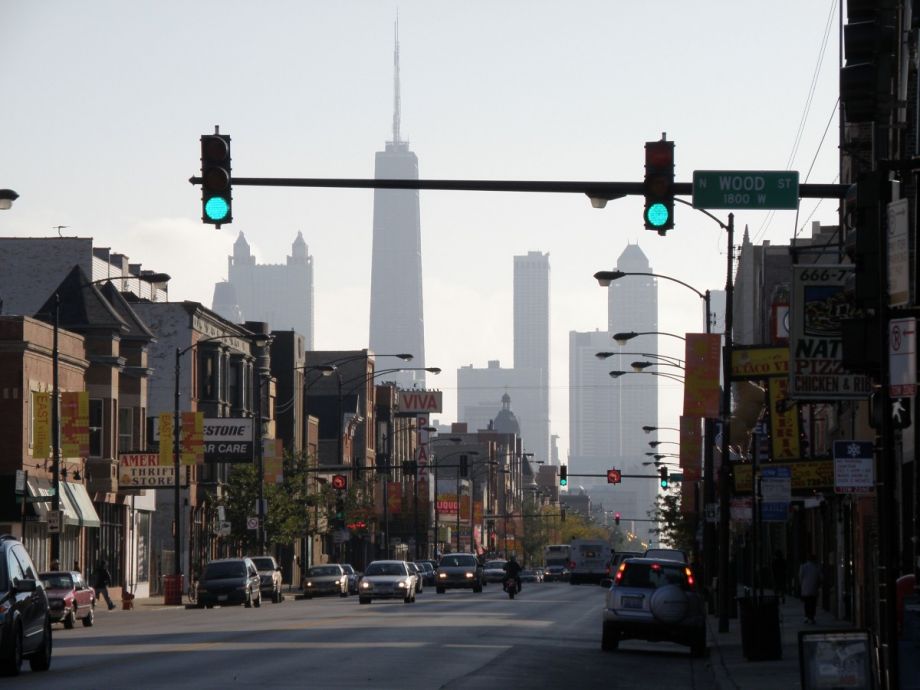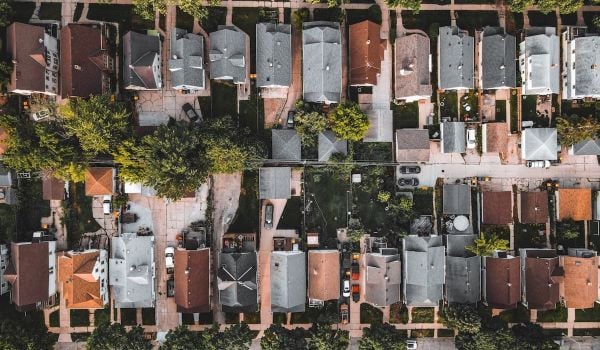Air is becoming an increasingly popular bargaining chip for big city mayors. Mayor Bill de Blasio’s Housing NYC Plan works through the city’s zoning code, allowing developers to build higher in exchange for setting aside a portion of their buildings as permanently rent-regulated housing units. Chicago Mayor Rahm Emanuel’s downtown development plan allows developers to build taller and denser in Chicago’s downtown areas in exchange for payments into a pool of funding he calls the Neighborhood Opportunity Fund.
Last week the city of Chicago announced the first $3.2 million awarded out of the Neighborhood Opportunity Fund. The nine awardees included restaurants, a dental office, a marketing company, a bakery and an ice cream shop scattered across low- to moderate-income areas on the South and West Sides of Chicago, overlapping with commercial corridors the city previously targeted for revitalization.
One such corridor is West Humboldt Park, where, as I previously reported, the West Humboldt Park Family and Community Development Council is working to revitalize the area, starting with an anchor commercial tenant, local celebrity chef Quentin Love and his new Turkey Chop restaurant. With Love on board, the group recruited another local celebrity chef, Stephanie Hart, to open a second location for her Brown Sugar Bakery along the corridor — and that location is one of the Neighborhood Opportunity Fund’s first-round awardees.
The city says it received 700 applications in the first round of funding, and 32 winning businesses were selected.
“These investments are going to directly support neighborhood entrepreneurs on Chicago’s south, southwest and west sides,” Emanuel said in a statement. “But they will also expand quality food options, create neighborhood meeting places, support tech business growth, and generate new retail options. By linking growth downtown directly to growth in our neighborhoods we can ensure the entire city of Chicago thrives for generations to come.”
The Chicago Sun-Times characterized the announcement as “the first concrete steps to shed his image as ‘Mayor 1 Percent.’”
Previously, the city’s Zoning Bonus Ordinance allowed downtown developers to build higher and denser than current zoning allowed if they agreed to build underground parking garages, outdoor plazas, winter gardens and other features. That changed after Emanuel’s proposal passed city council last spring. While the fund got started with $4 million in initial payments, there is a $15.6 million payment in the works on a single pending deal, the Chicago Sun-Times reports.
Not all of those funds would go out into the designated South and West Side neighborhoods. Under Emanuel’s proposed changes, 80 percent of developer payments go directly into the Neighborhood Opportunity Fund.
Meanwhile, another 10 percent goes into a citywide fund to support the restoration of structures designated as official landmarks by City Council, and the remaining 10 percent goes into a project local impact fund to support improvements within 1 mile of the development site generating the development funds, including public transit facilities, streetscapes, open spaces, river walks and other sites, including landmarks.

Oscar is Next City's senior economic justice correspondent. He previously served as Next City’s editor from 2018-2019, and was a Next City Equitable Cities Fellow from 2015-2016. Since 2011, Oscar has covered community development finance, community banking, impact investing, economic development, housing and more for media outlets such as Shelterforce, B Magazine, Impact Alpha and Fast Company.
Follow Oscar .(JavaScript must be enabled to view this email address)
















